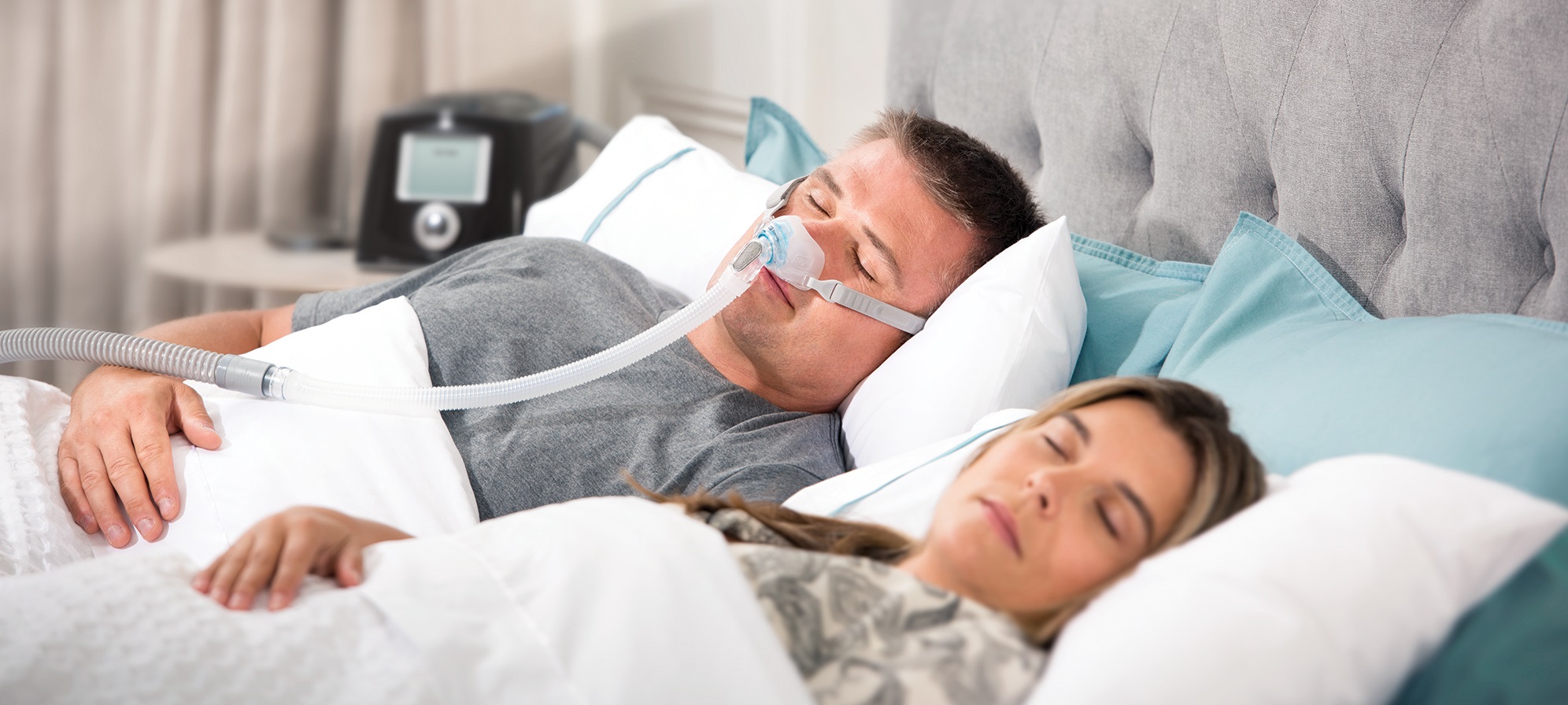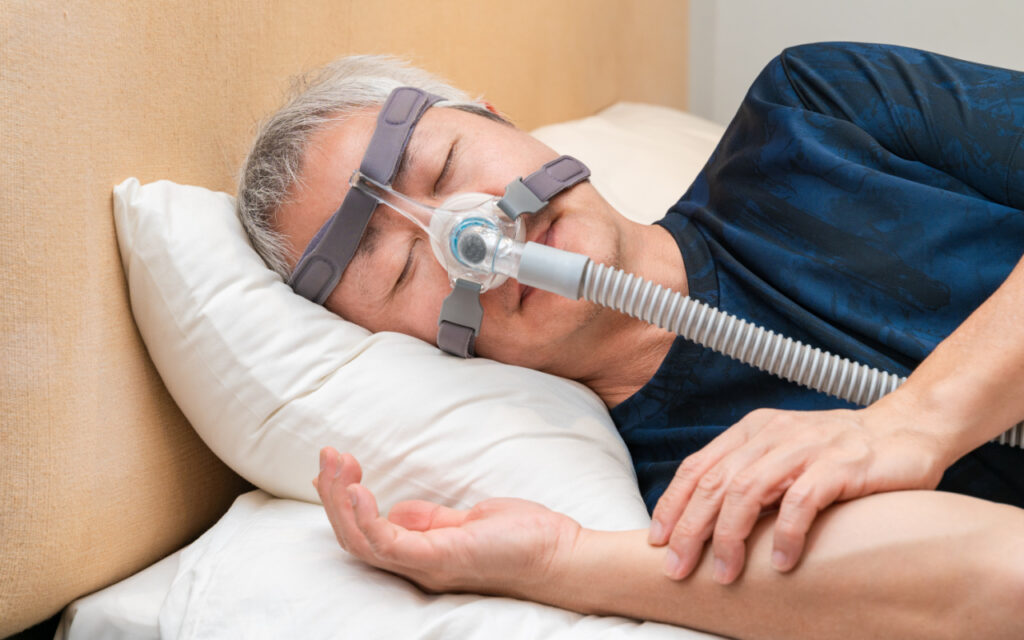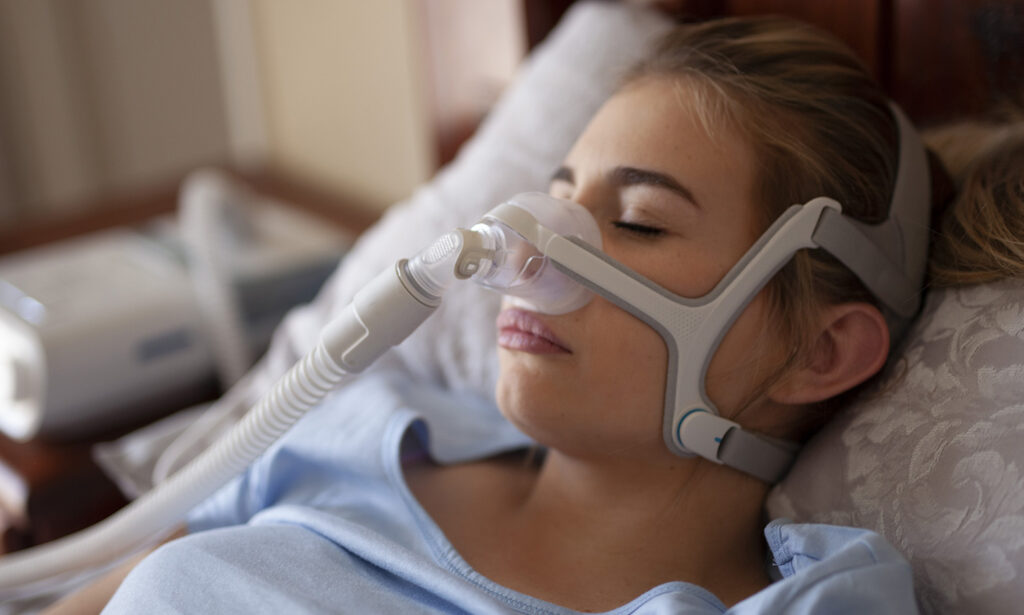How to Avoid the Most Common CPAP Machine Side Effects

Because it is safe, non-invasive, and, most importantly, effective, CPAP therapy is regarded as the gold standard in treating obstructive sleep apnea (OSA). However, like with any therapeutic option, it is not without danger of negative effects.
The adverse effects of CPAP use are normally moderate, but they might be unpleasant enough to cause some patients to discontinue and sent their cpap machines for sale. Fortunately, these problems are also easily treated, so before you abandon CPAP, consider the alternatives listed below.
We’ve gathered a list of the most frequent CPAP-related issues and solutions to or avoidance of these issues!
Related: CPAP Machine Parts Replacement and Maintenance

CPAP Complications and Solutions
Difficulties with Exhalation
While most CPAP users adjust well to their therapy, some may find it difficult to exhale against the constant flow of air. Even if adequate air is allowed, this might cause a sense of shortness of breath.
How to Prevent It
- First, experiment with the exhalation relief settings on your CPAP machine. This is commonly referred to as EPR, A-Flex, C-Flex, or SmartFlex. Whatever you call it, it reduces the pressure on your exhale.
- Talk to your doctor about changing your pressure settings. It would be best if you never tried to change your pressure settings without first seeing a specialist.
- Consult your doctor about using an APAP machine. APAPs, also known as AutoCPAP devices, employ modern algorithms to monitor your breathing pattern and change your pressure as needed.
- Sometimes, your doctor may advise you to use a BiPAP machine. BiPAPs, also known as Bi-Level CPAPs, has two pressure settings. A greater inhalation pressure provides the necessary support to prevent apnea, while a lower exhalation pressure allows for a more natural breathing rhythm.
Dehydrated Mouth
Mouth breathers are more likely to wake up with a dry mouth or throat, which, like nasal congestion, is produced by inhaling dry, pressured air.
Though it is more likely in those who use a full-face mask, “mouth leak” can also occur in individuals who use a nasal pillow mask or nasal mask. When you sleep with your mouth open, air pressure escapes via the open mouth when you exhale.
How to Prevent It
Regardless of your mask style, a CPAP humidifier will provide moisture to soften the airflow. If you wear a nasal pillow mask or nasal mask, you should also wear a chinstrap. CPAP chinstraps are meant to be used in conjunction with your CPAP system and gently keep your mouth closed while sleeping.
Nasal Obstruction
Congestion or inflammation of the nasal passages is one of the most prevalent adverse effects of CPAP treatment. This includes symptoms such as a stuffy nose, a runny nose, a burning sensation, or nosebleeds.
Nasal congestion is produced by the passage of dry, pressurised air through the sinuses, and it is most common in those who have regular sinus infections.
How to Prevent It
Try a nasal saline spray to moisten your nasal passages for short-term relief.
Consider utilising a CPAP humidifier for long-term care. Humidification provides moisture to the airflow, reducing dryness and discomfort. A heated humidifier softly heats the air while it hydrates, providing additional comfort and a more natural sensation.
Aversion to heights
New CPAP users may struggle to acclimate to the sensation of wearing a CPAP mask and tubing. This is especially important for individuals who need a full-face mask. While the sensation normally fades away with time and experience, it might make it difficult to use your CPAP machine daily.
How to Prevent It
Start slowly by using CPAP treatment while awake for short periods. Then, while reading or watching TV in bed, consider wearing your CPAP mask (with your CPAP equipment powered on).
If you need a full-face mask, choose a minimal-contact design, such as the ResMed AirFit F30 or the DreamWear Full Face Mask.

Bloating, gas, and burping
Higher pressure settings increase the likelihood of swallowing air, a condition known as “aerophagia.” When continuous positive airway pressure flow becomes too difficult to breathe against, it may reroute into your oesophagus. Bloating, burping, stomach discomfort and gas are all symptoms of aerophagia.
How to Prevent It
Talk to your doctor or a sleep specialist about changing your pressure settings. You should never try to change your pressure settings without first seeing a doctor or a sleep specialist.
Acne and Irritation of the Skin
While you sleep, your CPAP mask can collect skin oils, dead skin cells, and perspiration, which can contribute to the growth of germs and bacteria. This accumulation can lead to skin irritation, redness, acne, and blisters.
How to Prevent It
- Regularly wash your CPAP mask with soap and water, and replace the cushions every 2-4 weeks. Even with routine cleaning, micro-tears in silicone or foam can accumulate bacteria over time.
- Mask liners and gel can help reduce perspiration and skin oil buildup while promoting proper mask seal.
Eye Dryness
If you wake up with dry eyes, it’s very certainly due to a mask leak. While you sleep, the exciting air sweeps across your face, drying your eyes. Because the quantity of leaking varies with your sleeping position during the night, you may not even notice.
How to Prevent It
- First and foremost, make sure your mask fits correctly. Because your face shape changes when you lie down, re-adjust the fit when lying in your chosen sleeping position.
- Check that your helmet isn’t too big or too small. Loose straps enable air to escape, but an overly tight fit can also create leaks by preventing your cushion from fully closing.
- Hold your cushion slightly above your face if your mask requires it to inflate to build up CPAP pressure.
- If your mask leaks after refitting, it’s time to replace it. To maintain the effectiveness of your sleep treatment, replace your cushions every 2-4 weeks, your mask frame every three months, and your headgear every 6 months.
Find the CPAP Supplies that are Right for You.
While the potential adverse effects of CPAP use are rarely harmful, they can cause some patients to discontinue their sleep medication. That is why comfort features and CPAP accessories are more than just nice-to-have; they might be the difference between quitting and obtaining a decent night’s sleep.
